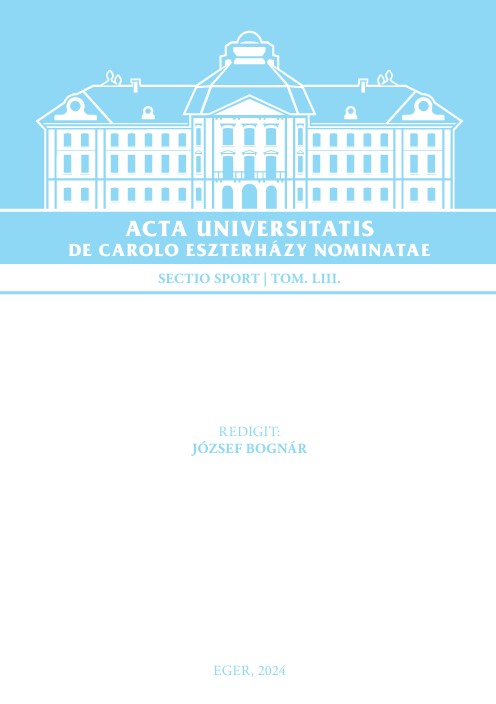THE DEVELOPMENT OF COGNITIVE ABILITIES
THE APPLICATION OF INNOVATIVE TOOLS IN PHYSICAL EDUCATION CLASSES
DOI:
https://doi.org/10.33040/ActaUnivEszterhazySport.2024.53.73Keywords:
movement, cognitive abilities, innovative toolsAbstract
Cognitive abilities play an important role in successfully carrying out our activities in all areas of life. Equivalently to all skills, it can be developed, specifically with one of the most elementary methods, movement. Movement and cognitive processes have been proven to influence each other, therefore physical education in schools can also ensure the development of many brain areas, and also cognitive skills. The research aims to prove that in the case of the participating groups in the development process, developments carried out with the help of innovative tools can soon lead to positive changes, also in relation to other school subjects. The selected 22 participants engaged in pre- and post-measurements focusing on reflectiveness, perception, spatial orientation, reaction time, concentration, attention sharing, memory, working memory, as well as other areas such as speech comprehension, speech perception, association ability, calculation ability. During the preliminary measurements, the control-group produced better results. For the goal of the survey, the experimental group with 11 people carried out targeted cognitive skills development 3 times a week for 2 weeks during physical education classes. The developments were implemented in a playful way with innovative tools. Based on the results of the follow-up measurements and the paired t-test, the significant development of the experimental group can be clearly established, both in classroom and movement measurements, while the results of the control group showed stagnation or deterioration in all cases. Other interventions involving larger age groups are recommended for further research.

